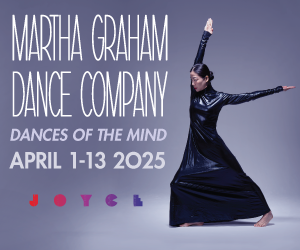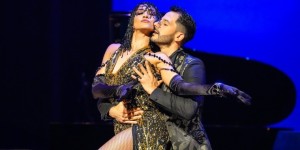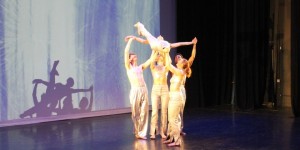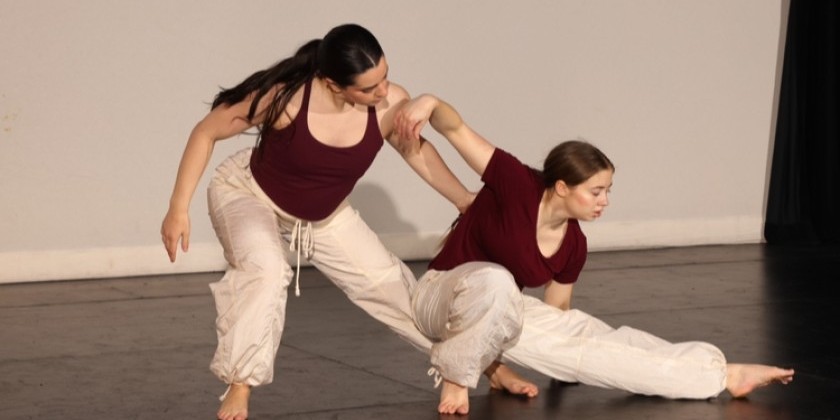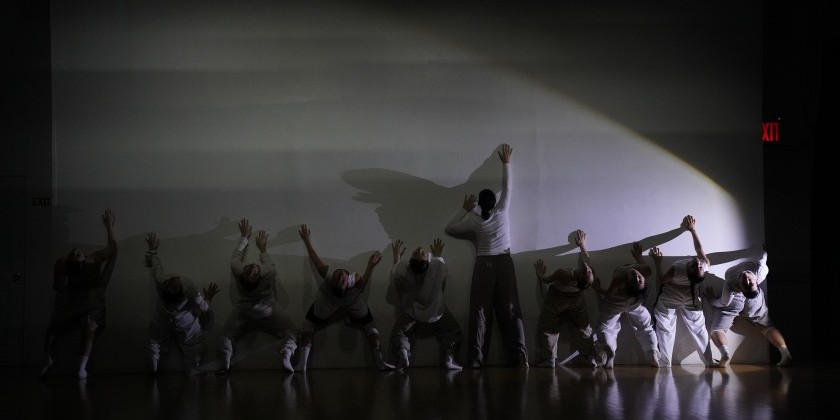AUDIENCE REVIEW: Vangeline Theater: HOWL! FESTIVAL

Company:
Vangeline Theater: HOWL! FESTIVAL
Performance Date:
10/30/2011
Company / Show / Event
Vangeline Theater: HOWL! FESTIVAL
Performance Date
10/30/2011
Venue / Location
Theater 80/ NYC
A bit about you:
(your occupation, the last time you moved, your website, etc.)
Theatergoer
Freeform Review:
On 2011 Halloween Night, I had a chance to attend a series of dance performances DANCE MACABRE, curated by Vangeline Theater, a Butoh based dance company. It was a part of HOWL! project which supports artists in need of health/medical help, in East Village and Lower East Side in Manhattan.
What was most interesting about DANCE MACABRE series was in its curation, which seems deeply rooted in the tradition of Japanese Butoh dance. Stylistic differences of each piece in the lineup made it slightly difficult for this writer to delve into the soul of Butoh at the start. But I found myself satisfied at the end of the evening for each dance’s physical grace and the stories told.
One of the evening’s highlight that I thought worth mentioning was a haunting piece called “Earth Moving,” choreographed by Vangeline Theatre. The piece was performed by two captivating dancers (Shiho Tanaka and Maiko Ikegaki), both clad in simple white cloth and wolf-like masks.
They entered from the opposite side of the starkly-lit stage, walking on their hands and knees. The exquisitely slow move towards each other seemed to demand the kind of physique developed through Butoh training. It wasn’t the time the characters just trying to pass. It felt that they were establishing the environment that allowed only such movement.
Prolonged time expressions started to change as they came close to each other, as if they recognized one’s existence, creating a new dimension to the environment that enveloped the characters. It seemed that the senses were introduced to the world. And yet I was still reminded of the awkwardness of each character’s curiosity by the dancers’ intricately controlled physical movement, as if these creatures had never explored the physical space filled with the unknowns. The environment they created were not perhaps enough to fully embrace the new ideas, new sensations of other beings.
After a course of exploration, their movement seemed to become more investigative. Cerebral, one might say. Impression was still ambiguous but the movements felt specific. The imbalance created by this juxtaposition was quite overwhelming to the senses. The characters on the stage must have felt the same. It’s almost futile to be horizontal and to hide behind the masks, if they were to find more, to desire to know more. So they stood, and took off their masks. White-painted human face appeared on the characters, with an empty stare into the air. Was it worth it? Was it all cracked up to be?
My experience with Butoh-style dance, I must admit, is rather limited. Sankai-Jyuku’s most graceful performance in hanging on the rope from the rooftop of building; almost campy stage of Dai Rakuda Kan; free-styling of out-bursting human soul by Min Tanaka; and a simple and most graceful movement of great Kazuo Ohno. What had impressed me in the past consistently through all these performances were eyes that were never closed. The eyes, this writer felt, were the entrance to their body and soul, maybe more so than with the dance’s idiosyncratic and yet expressive body movement.
In “Earth Moving,” the final gaze into the still air allowed me to have a glimpse of their uncertain souls; the environment still stark and the feeling still primeval - the unsure path the characters trod in and are to tread on.
I felt the title of the piece most appropriate. It’s the earth that moved in that moment, but has anything changed since the time we started to walk on it on our feet? The earth is still moving without an answer.
Ms. Tanaka and Ms. Maiko performed the piece eloquently with such physical grace and discipline, to make the audience engage in their journey that is not quite finished yet.





